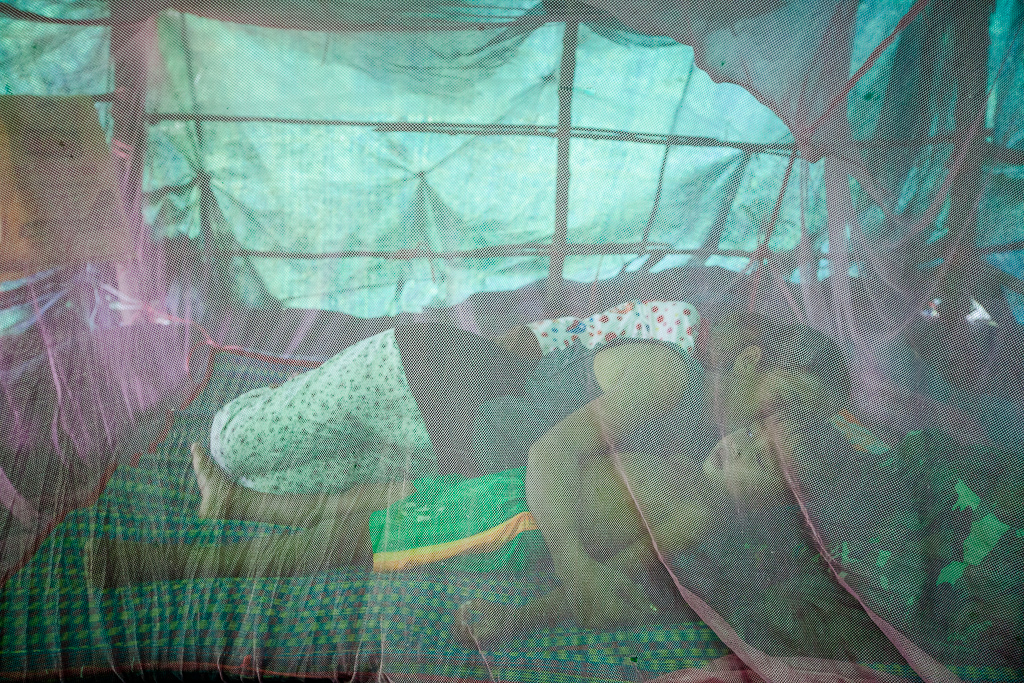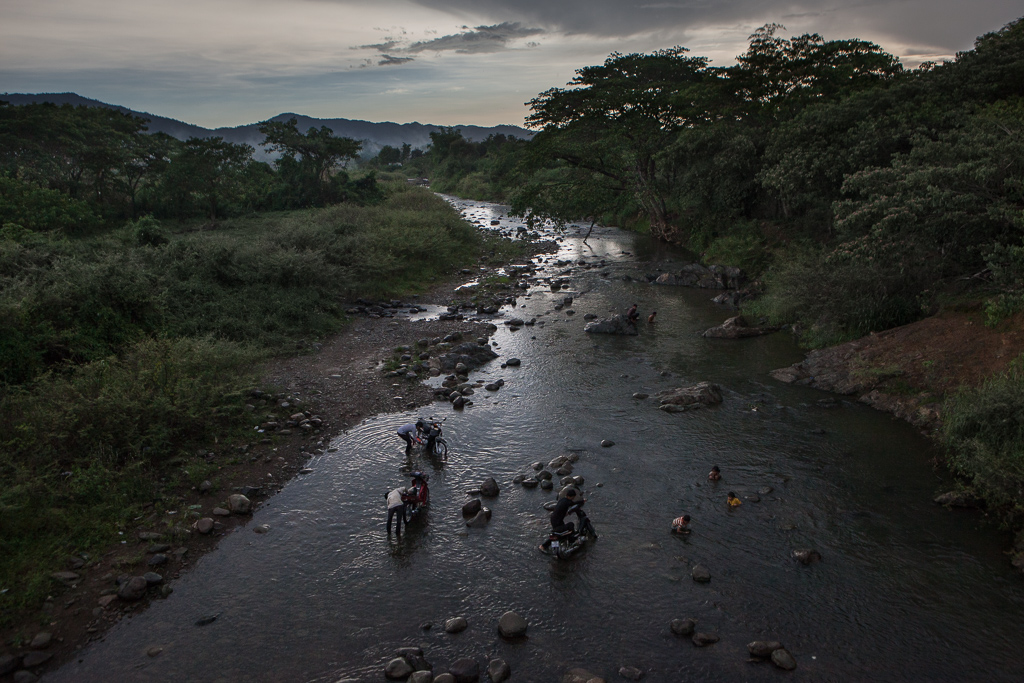
On a blistering hot October day last year, the air thick with impending rain, Myaing Myaing Nyunt and I lurch in a wooden oxcart toward Sa-ka-pin, a small village in the rich agricultural lowlands about 20 kilometers northeast of Mandalay, Myanmar. We grip the splintery sides of the cart as the animals plunge chest deep in the muck; when they swish their tails, mud splatters everywhere. It's 1 month before Myanmar's historic election, and with us in the back is a young doctor with "NLD," the initials of Aung San Suu Kyi's opposition party, the National League for Democracy, shaved into his close-cropped hair. A second cart carrying township medical officers follows close behind. We stop at a wide, shallow river, where a man in a dugout canoe ferries us across. Two more carts are waiting for us.
Nyunt, a malariologist at the University of Maryland School of Medicine (UMD) in Baltimore, is visiting Sa-ka-pin to assess the extent of one of the biggest problems facing an ambitious campaign to wipe out malaria from the Mekong region (see feature story on How drug resistance triggers war to wipe out malaria in the Mekong region): the number of people infected with malaria who have no symptoms. It's part of a unique collaboration led by Nyunt and her husband, molecular epidemiologist and malariologist Chris Plowe, who heads the Institute for Global Health at UMD. They are working with government scientists in Myanmar to forge the scientific and political links needed to drive malaria from her native country. The project has brought Nyunt back to Myanmar after more than a quarter-century of living abroad, much of it in exile.
She was 22 years old and in the sixth and final year of medical training at Rangoon University (now the University of Yangon) on 8 August 1988 when her country exploded. Tens of thousands of students and then doctors, monks, and ordinary Burmese took to the streets, demanding an end to the repressive military regime led by Ne Win. Hundreds, perhaps thousands of protesters were killed before the uprising ended 18 September 1988 with a military coup. The day is memorialized as 8-8-88.
Nyunt and many other students fled to the Thai border, where she "floated" for a year, eventually ending up in Bangkok selling luggage. There she met malariologist Nick White of the Mahidol Oxford Tropical Medicine Research Unit in Bangkok. White and some friends helped get Nyunt out of the country and to the United Kingdom in 1989—he still will not say how—to continue her medical education.
But with no papers and no passport, no school would take her. So Nyunt worked as a waitress and a companion to an elderly woman in Oxford. In 1990 she immigrated to the United States, where a small liberal arts college in the Northeast agreed to accept her as a junior. She finished her medical degree in 2000 and her Ph.D. and fellowship in clinical pharmacology in 2008, both from Johns Hopkins University in Baltimore. "For 20 years I cut myself off from all things Burmese," she says. "I was immersing myself in American culture. I was finishing medical school and raising a daughter."
That changed during a second outbreak of turmoil in Myanmar, the Saffron Revolution of 2007, when she watched in horror on TV as soldiers gunned down protesting Buddhist monks in the streets. "I realized that whatever we [the West] had been doing for the past 20 years wasn't working. The economic sanctions didn't stop the regime but left the people in appalling isolation and poverty." By then she was married to Plowe, and they began talking about what they could do, settling on science—particularly malaria—as a way to bridge some of the many divides.
Nyunt cobbled together funds, including from George Soros's Open Society Foundation. In 2012, when the United States loosened some sanctions, she landed a small grant from the National Institutes of Health to conduct a study of malaria in pregnancy in 12 villages. Plowe was training local investigators in molecular epidemiology and tracking the spread of artemisinin resistance. Soon their work evolved into the current collaboration: a $4.6 million project funded by the Bill & Melinda Gates Foundation (BMGF). The aim is to conduct molecular surveillance of the so-called asymptomatic reservoir and also to build the political will within Myanmar for malaria elimination.
Sa-ka-pin is one of 44 villages in nine states and regions where the partners are working. When we finally reach the village, a midwife-turned–malaria researcher greets us at the small rural health center. She is dressed in a bright red longyi and impossibly white, starched blouse, and her cheeks are smeared with bark paste known as thanaka to protect her skin from the sun.
Plowe is trying to develop surveillance methods that hit the "sweet spot," by which he means sensitive enough to detect very low parasite loads in asymptomatic carriers—microscopy is too crude—but portable enough to use in the field. One is being tested here as the midwife uses a finger stick to collect 300 microliters of blood, just five or six drops, in a small tube, then she treats the samples with a DNA/RNA shield, essentially detergent to prevent degradation. "Her samples are impeccable," Nyunt tells me.
"You can stick the tube in your pocket and carry it around at room temperature for a couple of weeks," Plowe says, until someone is able to transport it to a government lab in Yangon. There, scientists trained by Plowe's group run the samples through a high-throughput, ultrasensitive polymerase chain reaction machine, compliments of UMD and BMGF, to detect the parasite's DNA.
Nyunt and Plowe are also forging political alliances. In August of last year, they organized an unusual meeting in Washington, D.C., where many of the splintered factions in Myanmar sat down at the same table to talk. Participants included high-level military scientists, representatives of Myanmar's president and government ministries, then-opposition leader Aung San Suu Kyi, and three prominent ethnic minority groups. All must be involved if elimination is to succeed, Nyunt and Plowe contend. Also in attendance were most of the big funders in malaria research in the United States. Tense at first, discussions yielded an unexpected consensus statement: The group would rise above politics and eliminate malaria. "It was very emotional," Nyunt says.
Not everyone is persuaded by Nyunt and Plowe's brand of diplomacy, arguing that they risk being co-opted by the government and that malaria experts should just get on with the job. Nyunt says her eyes are wide open as she waits to see whether all the "nice gestures" translate into action. But, she cautions, "malaria will not be eliminated by expat scientists or international NGOs [nongovernmental organizations]. It must be done by the Burmese."






